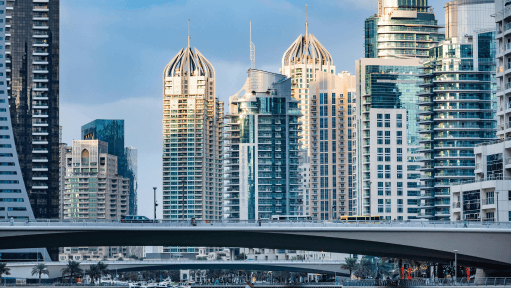
Legal Framework and Regulations Governing Property Mortgages in UAE
It is essential for property owners, investors and lenders to have a solid grasp of property mortgage laws
The real estate market in the UAE has experienced significant growth, attracting investors globally. An important aspect of property ownership in the UAE is having a thorough understanding of the legal framework governing property mortgages.
It is essential for property owners, investors and lenders involved in real estate dealings in the UAE to have a solid grasp of UAE property mortgage laws.
By familiarising themselves with the fundamental concepts, processes and legal considerations highlighted in this article, stakeholders can effectively navigate mortgage transactions and safeguard their interests in the ever-evolving UAE property sector.
Key Concepts of UAE Property Mortgage Law
Definition: A mortgage is a legal contract where a property owner (mortgagor) pledges their property as collateral to secure a loan from a lender (mortgagee). The lender maintains a lien on the property until the loan, including principal and interest, is fully repaid.
Mortgage Registration: All property mortgages in the UAE must be registered with the respective emirate's land department to be legally binding. This process involves submitting the mortgage agreement and necessary documents to the land department and paying the required registration fees.
Mortgage Priority: The priority of a mortgage determines its position concerning other creditors' claims on the property. Typically, mortgages are ranked based on their registration date and time with the land department, with earlier registrations holding higher priority.
Rights and Obligations: Property mortgages in the UAE grant specific rights and responsibilities to both the mortgagor and mortgagee. While the mortgagor retains property ownership and possession, the mortgagee has the authority to enforce the mortgage in case of default by the mortgagor.
Procedures for Property Mortgage Transactions
Negotiation and Agreement: The process commences with negotiations between the mortgagor and mortgagee to establish the terms and conditions of the mortgage, such as loan amount, interest rate, repayment schedule, and other relevant terms.
Execution of Mortgage Agreement: Upon reaching a mutual understanding, the parties proceed to execute a mortgage agreement that outlines the terms of the mortgage. This agreement must adhere to the legal requirements set forth by UAE law and must be signed by all parties involved.
Registration Process with Land Department: Following the execution of the mortgage agreement, along with the submission of necessary documentation, the agreement is presented to the land department of the relevant emirate for registration. Once registered, the mortgage is officially documented in the land registry, serving as notice to third parties regarding the mortgagee's stake in the property.
Funds Disbursement: Upon successful registration, the mortgagee releases the loan funds to the mortgagor in accordance with the agreed-upon terms. The mortgagor can utilise these funds for property acquisition, development, or other purposes, as outlined in the mortgage agreement.
Legal Considerations for Property Stakeholders
Conducting Due Diligence: Prior to finalising a mortgage agreement, property owners and investors should conduct thorough due diligence on the property, lender and mortgage terms to mitigate risks and ensure compliance with legal regulations.
Sharia Compliance: In instances where Islamic financing structures like Murabaha or Ijara are utilised, all parties must ensure adherence to Sharia principles governing financial and property transactions.
Default and Foreclosure Awareness: Property owners should understand the implications of defaulting on mortgage payments, which could lead to foreclosure proceedings initiated by the mortgagee to recover the outstanding debt by selling the mortgaged property.
(The writer is a legal associate at Dubai-based NYK Law Firm)
For any enquiries or information, contact ask@tlr.ae or call us on +971 52 644 3004. Follow The Law Reporters on WhatsApp Channels.